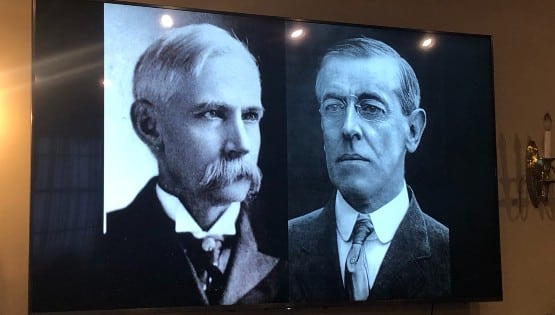
Bond, who passed away on Saturday at the age of 75, left an impression on so much. He was a founder of the Student Nonviolent Coordinating Committee, a founder of the Southern Poverty Law Center, the president of the NAACP.
He was also a lecturer and later professor at the University of Virginia, and that was how I was privileged to be in his presence for a semester, as a student in his History of the Civil Rights Movement class in the spring of 1993.
It occurred to me at some point several lectures in that when he referred to having a conversation with Martin at some point or another in the 1960s, Martin was Martin Luther King Jr., and so that this class wasn’t so much a history class taught by a researcher who had come to know the subject because of curiosity, but had actually lived it, and helped make it happen.
My takeaway from the class was a workshop that Bond had us take part in that was based on something that SNCC had helped develop to train civil rights volunteers in the 1960s. There were roughly 50 of us in the class, and we were assigned to take turns in a real-life student counter sit-in, alternatively playing the roles of student protestors, wait staff, angry citizens and cops.
I was assigned in the first wave to be an angry citizen, given direction to shout racial epithets at the students leading the sit-in. It didn’t go so well, to say the least. None of us, white kids or black kids, could bring ourselves to use the n-word, to curse, to make life difficult for the protestors.
Bond interjected, telling us that we needed to make this as real as possible for it to have any value, and the next wave got a little more into it.
By the time it was my turn to be a student at the lunch counter, the n-word was flying, and I was gathering my fellow protestors into a circle to protect us from the angry mob, and we started to sing “We Shall Overcome” together before Bond called halt.
He said afterward that the workshops that SNCC had led back in the 1960s had gone about similarly, with the volunteers resistant at first to using the epithets, then things over time almost getting out of control, which worked to get the volunteers the training they needed, but there was almost a psychological experiment going on at the same time.
As with the SNCC volunteers in the 1960s, we had a room full of students who had willingly signed on for a civil rights history class being taught by Julian Bond, and within an hour, with Bond providing the impetus, we were denigrating each other with impunity.
If we could do that to each other, what did that say about the world at large?
It was and is something to think about, that none of us are too far away from being able to spew hate, and maybe at the same time, we’re not that far away from seeing how close we can get, and what we can do to get back to where we need to be.
There was one more lesson to come. Bond asked us our thoughts on the activity, and I shot my hand up and offered that I wasn’t sure that I could have done what I would have been asked to do as a nonviolent protestor, to take that kind of abuse from people and not instinctively fight back.
Bond laughed, noting my size – as a third-year student 20-plus years ago, I was a strapping 6’2”, 225, shoulders and quads like a linebacker – telling the class that back in the 1960s it was usually “the big guys” who would balk at first at doing what they needed to do to take part in a nonviolent protest.
It was a lesson that took a while to sink in for me, but eventually did, that strength isn’t necessarily a 400-pound bench press, but something that comes from inside.
His laugh, of course, was just as regal as you would expect from his narrations on “Eyes on the Prize.” That voice was a reflection of his inner strength, and it’s the impression of that strength that lives on for me as I reflect on the passing of Julian Bond.
– Column by Chris Graham










